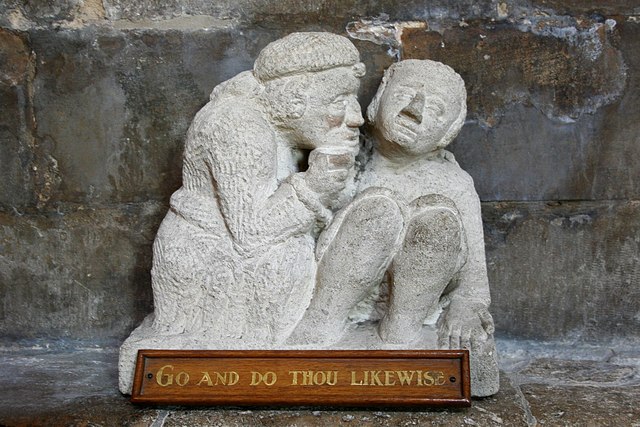 Start fall programs at your church off with a bang during this election season by bringing respected author and activist Parker Palmer in to talk about productive political discourse. As you may know, from Sept. 5-19, we will be offering Bridging the Political Divide with Parker Palmer for free to anyone who wants to take it. After Sept. 19, we will offer the class in the usual way, For Individuals and For Groups, to churches with ChurchNext subscriptions and for individual purchase.
Start fall programs at your church off with a bang during this election season by bringing respected author and activist Parker Palmer in to talk about productive political discourse. As you may know, from Sept. 5-19, we will be offering Bridging the Political Divide with Parker Palmer for free to anyone who wants to take it. After Sept. 19, we will offer the class in the usual way, For Individuals and For Groups, to churches with ChurchNext subscriptions and for individual purchase.
For those who are new to ChurchNext, the classes consist of four lectures of about five minutes each. Each lecture is accompanied by a short written introduction, a brief, optional quiz, and three discussion questions. In group settings, people often skip the quiz and go straight to the discussion questions.
So what are some ways to use this class in your congregation?
- Use it in adult forum. During this election season in particular, people are feeling alienated from each other by politics. Help guide your congregation through the divisive rhetoric of this time by offering this class in one or two sessions of adult forum. This approach is especially useful for churches that want to kick off a new season of online learning or introduce online learning to their congregations. It’s a good way to get people interested, let them know that these classes are available, and show folks how they work.
- Use it in EYC. Parker particularly emphasizes modeling respectful interactions with
 young people. Teenagers, who are learning how to engage in adult conversation and beginning their lives as mature citizens, may profit greatly from watching these videos and engaging these discussions. Better yet, have adults and teens discuss these issues together — perhaps over a meal.
young people. Teenagers, who are learning how to engage in adult conversation and beginning their lives as mature citizens, may profit greatly from watching these videos and engaging these discussions. Better yet, have adults and teens discuss these issues together — perhaps over a meal. - Make it a hybrid class. Many churches like to use the online format to both meet in person and enjoy discussion online. Perhaps meet once in person to discuss two lectures and discuss the other two online. Perhaps have a class that watches the videos at home and discusses the questions together in person. The format is pretty flexible — be creative!
- Use it in Bible study. This class discusses themes that appear often in Scripture. Use
 the class, or one of its lectures, to discuss issues in Scripture in ways that are relevant to today’s world. Take, for example, 1 Corinthians 10, in which Paul writes to the bickering Corinthians, “I appeal to you, brothers and sisters, in the name of our Lord Jesus Christ, that all of you agree with one another in what you say and that there be no divisions among you, but that you be perfectly united in mind and thought.” Parker’s class, especially lectures two and four, would be a great way to approach this passage from Corinthians on a relevant and contemporary level.
the class, or one of its lectures, to discuss issues in Scripture in ways that are relevant to today’s world. Take, for example, 1 Corinthians 10, in which Paul writes to the bickering Corinthians, “I appeal to you, brothers and sisters, in the name of our Lord Jesus Christ, that all of you agree with one another in what you say and that there be no divisions among you, but that you be perfectly united in mind and thought.” Parker’s class, especially lectures two and four, would be a great way to approach this passage from Corinthians on a relevant and contemporary level. - Use it to promote outreach. Outreach means reaching out to all kinds of people in the community — especially to people who are different. Parker’s class deals directly with handling differences with grace — not just avoiding discourtesy in conversation, but engaging differences and growing through communication with those whose views differ from our own. How much more outreachy can you get? Use the class to kick off the year with your outreach commission.
Have some other ideas about how to use this class with a congregation? Please comment! We’d love to share them.



 w to Help a Sick Friend with Joyce Mercer
w to Help a Sick Friend with Joyce Mercer 1. You can earn your
1. You can earn your  church. It’s called
church. It’s called